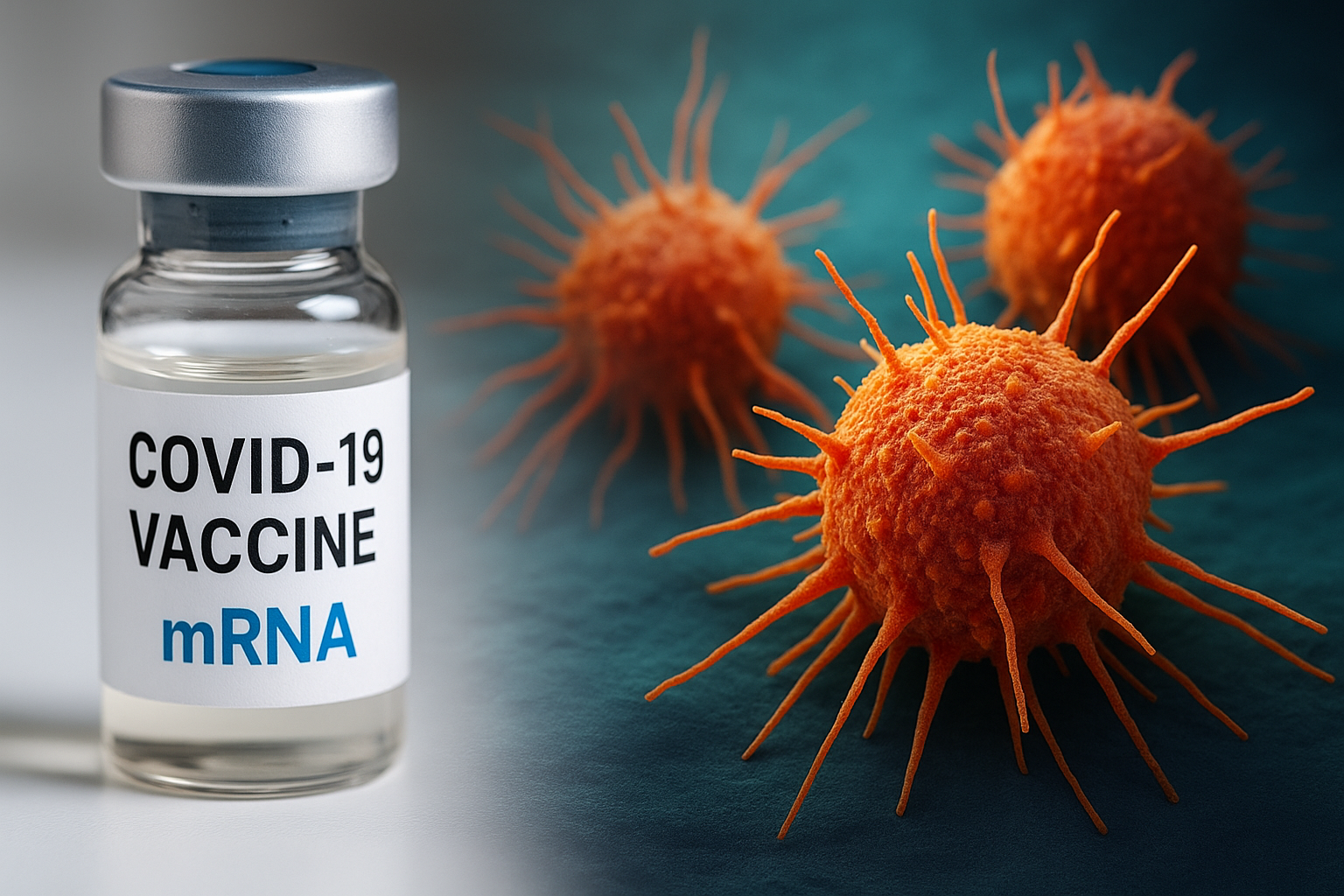
COVID mRNA Vaccine Improves Cancer Survival: A Groundbreaking Study
A new study has revealed that the COVID mRNA vaccine improves cancer survival among patients with advanced lung and skin cancer. Researchers from the University of Florida and the University of Texas MD Anderson Cancer Center found that cancer patients who received the vaccine within 100 days of starting immunotherapy lived significantly longer than those who didn’t.
A Breakthrough in Cancer Immunotherapy
This research marks a milestone in over a decade of efforts to develop mRNA-based cancer treatments. By analyzing data from more than 1,000 MD Anderson patients, the scientists observed a remarkable link between mRNA vaccination and enhanced survival outcomes.
According to Dr. Elias Sayour, a UF Health pediatric oncologist, these results suggest that mRNA vaccines can stimulate the body’s immune defenses in ways that could revolutionize cancer treatment. He emphasized that this discovery may pave the way for a universal, off-the-shelf cancer vaccine capable of improving outcomes across multiple cancer types.
How the mRNA Vaccine Boosts the Immune System
In previous experiments, researchers found that mRNA vaccines could activate the immune system even without targeting a specific tumor protein. Instead, the vaccine primes the body to respond as if it were fighting a viral infection, amplifying the effects of immunotherapy drugs that help the immune system recognize and attack cancer cells.
This aligns with earlier animal studies showing that combining mRNA vaccines with immune checkpoint inhibitors can turn unresponsive cancers into responsive ones, dramatically slowing tumor growth.
Study Results: Longer Survival After Vaccination
Among 180 patients with advanced lung cancer, those who received a COVID mRNA vaccine around the time of their immunotherapy had a median survival of 37.3 months — almost double the 20.6 months seen in unvaccinated patients.
For metastatic melanoma patients, vaccinated individuals lived between 30 and 40 months, compared to 26.7 months for those who didn’t receive the vaccine.
Notably, other non-mRNA vaccines such as flu or pneumonia shots did not affect survival rates.
Expert Insights and Future Directions
Dr. Duane Mitchell, director of the UF Clinical and Translational Science Institute, described the findings as “the type of benefit we strive for but rarely achieve.” Meanwhile, Dr. Jeff Coller from Johns Hopkins University noted that this study proves mRNA technology continues to transform medicine in unexpected ways.
The next step will involve a large clinical trial led by the UF-based OneFlorida+ Clinical Research Network to confirm these promising results in real-world settings.
A New Era for Cancer Vaccines
If future trials confirm that the COVID mRNA vaccine improves cancer survival, this could usher in a new era of cancer immunotherapy. Even a 5–10% improvement in survival could mean months or years of added life for patients with advanced disease.
“If this effect can be replicated, we’re looking at a major shift in how we treat cancer,” said Dr. Sayour.
Also read: HPV Blood Test Detects Cancer 10 Years Early.






